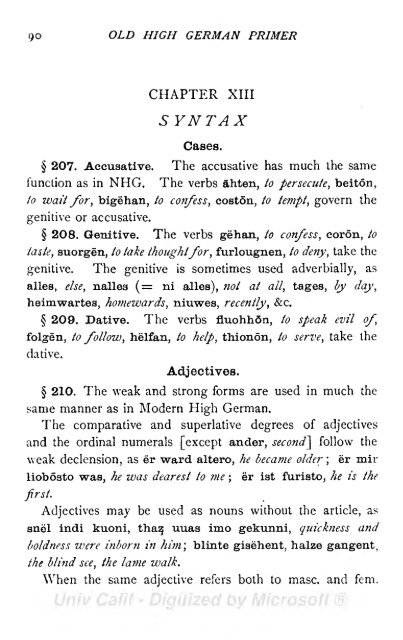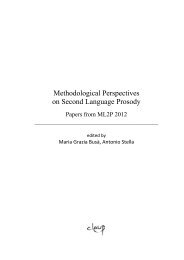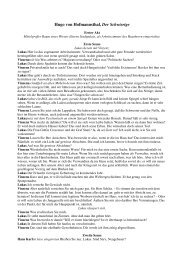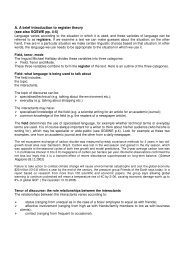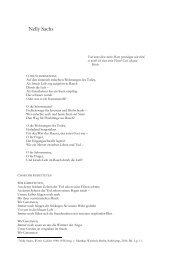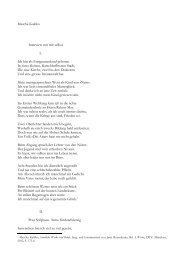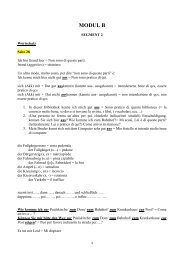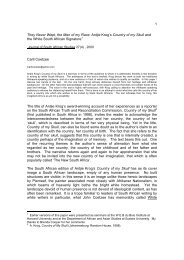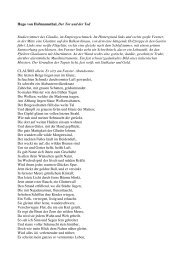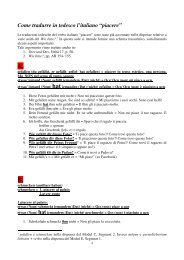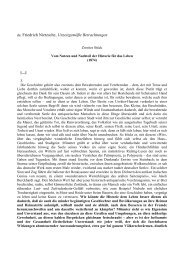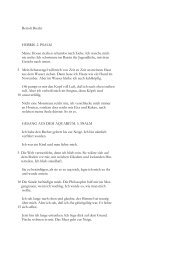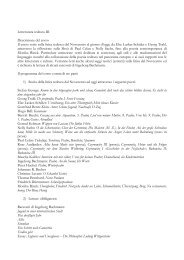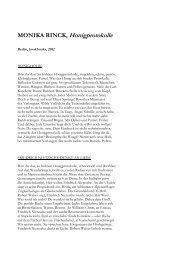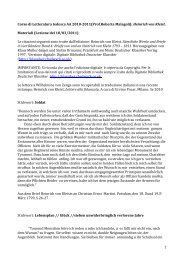You also want an ePaper? Increase the reach of your titles
YUMPU automatically turns print PDFs into web optimized ePapers that Google loves.
90 OLD HIGH GERMAN PRIMER<br />
CHAPTER XIII<br />
5 YNTAX<br />
Cases.<br />
207. Accusative. The accusative has much the same<br />
function as in NHG. The verbs ahten, to persecute, beiton,<br />
to wait for, bigehan, to confess, coston, to tempt, govern the<br />
genitive or accusative.<br />
2O 8. Genitive. The verbs gehan, to confess, coron, to<br />
taste, suorgen, to take thoughtfor, furlougnen, to deny, take the<br />
genitive. The genitive is sometimes used adverbially, as<br />
alles, else, nalles (= ni alles), not at all, tages, by day,<br />
heimwartes, homewards, niuwes, recently, &c.<br />
2O9. Dative. The verbs fluohhfin, to speak evil of,<br />
f<strong>ol</strong>gen, to f<strong>ol</strong>low, he'lfan, to help, thionon, to serve, take the<br />
dative.<br />
Adjectives.<br />
210. The weak and strong forms are used in much the<br />
same manner as in Modern High German.<br />
The comparative and superlative degrees of adjectives<br />
and the ordinal numerals [except ander, second] f<strong>ol</strong>low the<br />
weak declension, as e'r ward altero, he became <strong>ol</strong>der ;<br />
er mir<br />
liobosto was, he was dearest to me ; e'r ist furisto, he is the<br />
first.<br />
Adjectives may be used as nouns without the article, as<br />
snel indi kuoni, thasj turns imo gekunni, quickness and<br />
b<strong>ol</strong>dness were inborn in him; blinte gisehent, halze gangent,<br />
the blind see, the lame walk,<br />
When the same adjective refers both to masc. and fern.


